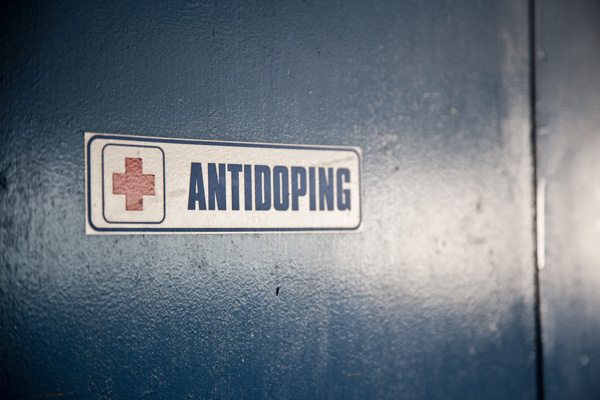Biological passport 'not effective' for detecting micro-dosing
Roman Kreuziger's case highlights developing uncertainty surrounding the efficacy and reliability of the biological passport anti-doping system

The latest race content, interviews, features, reviews and expert buying guides, direct to your inbox!
You are now subscribed
Your newsletter sign-up was successful
A leading expert has said that the Union Cycliste Internationale's biological passport system was never designed to catch athletes who micro-dose banned blood booster EPO or utilise low volume blood transfusions, questioning its effectiveness in the fight against doping.
Speaking off the record, the expert told us: “The bio passport was designed to catch people using EPO and using high-volume blood transfusions. Now, those who are still cheating are micro-dosing with EPO and using micro-transfusions and the bio passport is nowhere as effective as catching those people, it simply wasn’t designed to spot that sort of doping."
The statement comes in the wake of questions being asked about the UCI's bio passport system, after Roman Kreuziger of the Tinkoff-Saxo team was provisionally suspended then cleared for anomalies in his bio passport figures.
28-year-old Kreuziger was informed of the anomalies by the UCI in May, pre-emptively pulled from the Tinkoff team a week before the Tour de France and then suspended by the UCI days before he was due to start the Tour of Poland in August. The case has been additionally controversial – as well as chaotic - since the alleged anomalies in his blood profile dated to 2011-2012 when he was riding for Astana.
Kreuziger appealed to Court of Arbitration for Sport (CAS) in the hope of riding the Vuelta a Espana but CAS rejected his appeal. Now, his exoneration by the Czech Olympic Committee puts the UCI in a difficult position. It has been suggested by some experts that, as configured, the current bio passport is no longer fit for purpose.
The suggestion is that the window of 'dubious’ biological markers used to flag a possible doping offence is now so wide that it runs the risk of flagging individuals with ‘freakish’ but nevertheless honest biologies as dopers.
Whether or not Kreuziger has used this defence with his national Committee and whether or not the UCI intends to take the case to the CAS remains to be seen – the UCI has 30 days to appeal – but it’s unlikely this case is over yet and the potential for damaging the credibility of the bio passport is significant.
The latest race content, interviews, features, reviews and expert buying guides, direct to your inbox!

Roman Kreuziger cleared by Czech Olympic Committee
Tinkoff-Saxo's Roman Kreuziger free to race again after biological passport anomalies

Roman Kreuziger's biological passport appeal rejected by CAS
Court of Arbitration for Sport rejects Roman Kreuziger's appeal against provisional suspension due to possible anti-doping violation

Jonathan Tiernan-Locke isn't fully against bio passport
Jonathan Tiernan-Locke talks to Cycling Weekly about his doping suspension

Pellizotti to sue UCI over biological passport
Italian pro Franco Pellizotti wants to sue UCI for €200,000 in damages over bio passport 'anomalies'